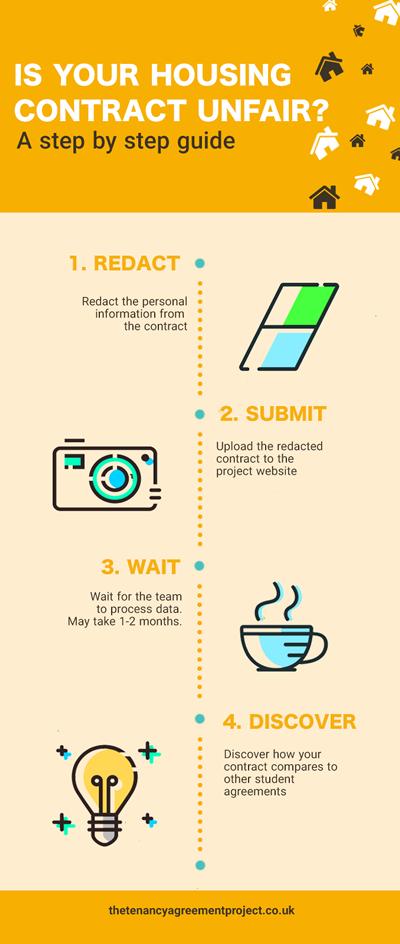NEW Legal Tech Clinic

Do you think your tenancy is fair? AI might have the answer. Help the Soton Legal Tech team find out.
Are you interested in their ground-breaking work? Check it out below:
The new Legal Tech Clinic was developed by the University of Southampton Law School, Professor Sophie Stalla-Bourdillon and Dr Alice Harrison, in partnership with Southampton alumni and Automate Legal founder, Ryan Hockley. A group of outstanding 3rd year students, George Laidlaw and Madison Stevens, and 2nd year law students Chris Ireland, Gabriella Schneider, Nick Heslop, and Georgia Mitchell were recruited for the project and are driving its success.
The project involves working with eBrevia an artificial intelligence (AI) review software and language processing tool to deconstruct and code crowdsourced Assured Shorthold Tenancy (AST) agreements. ASTs are the most commonly used type of tenancy agreement for privately rented student accommodation and involves a landlord-tenant relationship. The outcome of the project will be the production of tailored analysis and feedback of the ASTs, which will be provided to those who contributed their AST to the project. Additionally, we hope to create a general interactive dashboard that will allow our insights to be accessed and used by tenants and landlords alike. Our focus for the resulting feedback and insights is two-fold. First, that it informs the AST holder of the particularities of their agreement, and that it can be beneficial to the use of their AST (for example: as they move out and collect their tenancy deposit). Second, that the information is presented in a comprehensive user friendly manner that engages the reader, rather than overwhelms with verbage or legalease.
The motivation for joining this innovative endeavour involved a number of different factors for the students. Some had a strong interest in tenancy/housing law, others were drawn to the legal tech element and/or the generation of useful information to potentially vulnerable tenants. All were enticed by the opportunity as it presented a challenge to our knowledge and skill. As a team we have been able to work together to execute tasks, support one another’s development and comfortability with the elements of the project, and to find ways to best communicate with the many contributors needed to make this project a success.
Having crowdsourced for ASTs and developed skills in our areas of analysis throughout the fall, we are now training the AI software to identify those analysis areas and specific clauses we wish to report on. Our experience with the AI software thus far has shown us the exceptional user friendliness of the platform, which contributes both to ease and enjoyment of use. This illustrates just how powerful and transformative these kinds of software are, making it clear why law firms of all sizes are enticed to move away from the traditional model of legal practice. Moving into the early spring we will begin to put our trained AI software to work coding the ASTs, from which we will collect and analyze the results.
If our project has peaked your interest, please consider contributing by providing us with your AST by following these brief steps. We appreciate your assistance in making this project a success, and look forward to providing you with our analysis and insights!
1. Redact or delete any personal information about tenants and landlords on the Assured Shorthold Tenancy Agreement, using one of these free websites: PDF Zorro or PDF Pro
2. Submit the redacted AST to the online upload database here
Thank you for reading! We look forward to updating you on the project’s success upon its completion in April 2019.

